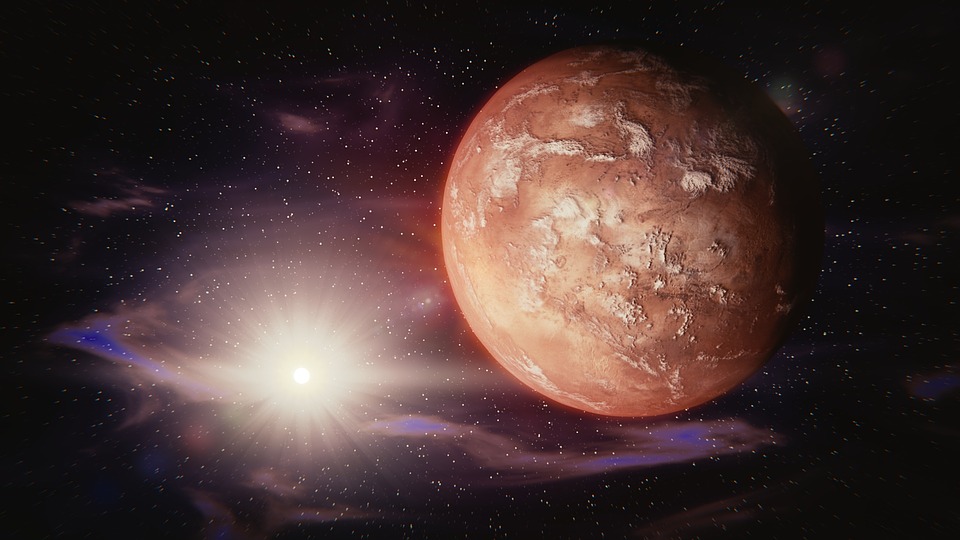NASA is in the process of preparing for its upcoming Mars missions, with other space agencies hoping to do the same and make a touchdown on the red planet. The agency’s administrator Jim Bridenstine revealed that NASA will be sending the first people to Mars by the end of the decade.
Bridenstine announced the upcoming manned Mars mission at an event at the Space Foundation early this week, coinciding with the 51st anniversary of the historic Apollo 11 mission. Bridenstine explained how the upcoming Artemis mission, which will put humans on the moon again after many years, will be the stepping-stone for the mission to Mars. “We have a big agenda to return to the Moon by 2024, and to do so sustainably by the end of the decade,” said the administrator.
The NASA chief also reiterated that the agency is determined to send the first humans to Mars. By the year 2028, NASA hopes to establish a firm presence on the Moon, for astronauts to learn more about living outside Earth. Other similar missions like the Mars Perseverance Rover will also help humans understand Mars a little better.
“Among the investigations onboard, the rover will carry two that will support future crewed missions onto the fourth planet -- one to produce oxygen from the Martian atmosphere and another to aid in the development of weather forecasting,” said Bridenstine, who added that the Mars mission will also involve navigation of the red planet’s terrain and how a potential spacesuit can be affected by the environment on Mars. “We anticipate sending humans to the fourth planet as early as the 2030s.”
Aside from exploring Mars, there is also the search for possible life forms, and according to expert Francisco Diego of UCL, there was once some proof of atmospheric pressure on the red planet. This kind of pressure was needed in order to preserve the water on the planet’s surface.
Speaking to Sky News, Diego explained that because there was once water on Mars, the astronauts who will be going on the future manned mission to the red planet will most likely found microfossils suggesting primitive life once thrived on Mars.



 NASA and Roscosmos Chiefs Meet in Florida to Discuss Moon and ISS Cooperation
NASA and Roscosmos Chiefs Meet in Florida to Discuss Moon and ISS Cooperation  NASA Astronauts Wilmore and Williams Recover After Boeing Starliner Delay
NASA Astronauts Wilmore and Williams Recover After Boeing Starliner Delay  SpaceX’s Starship Completes 11th Test Flight, Paving Way for Moon and Mars Missions
SpaceX’s Starship Completes 11th Test Flight, Paving Way for Moon and Mars Missions  Eli Lilly’s Inluriyo Gains FDA Approval for Advanced Breast Cancer Treatment
Eli Lilly’s Inluriyo Gains FDA Approval for Advanced Breast Cancer Treatment  Neuren Pharmaceuticals Surges on U.S. Patent Win for Rare Disorder Drug
Neuren Pharmaceuticals Surges on U.S. Patent Win for Rare Disorder Drug  Tabletop particle accelerator could transform medicine and materials science
Tabletop particle accelerator could transform medicine and materials science  Cogent Biosciences Soars 120% on Breakthrough Phase 3 Results for Bezuclastinib in GIST Treatment
Cogent Biosciences Soars 120% on Breakthrough Phase 3 Results for Bezuclastinib in GIST Treatment  Neuralink Plans High-Volume Brain Implant Production and Fully Automated Surgery by 2026
Neuralink Plans High-Volume Brain Implant Production and Fully Automated Surgery by 2026  SpaceX Prioritizes Moon Mission Before Mars as Starship Development Accelerates
SpaceX Prioritizes Moon Mission Before Mars as Starship Development Accelerates  Trump Administration to Launch Autism Initiatives Targeting Acetaminophen Use and New Treatment Options
Trump Administration to Launch Autism Initiatives Targeting Acetaminophen Use and New Treatment Options  Lost in space: MethaneSat failed just as NZ was to take over mission control – here’s what we need to know now
Lost in space: MethaneSat failed just as NZ was to take over mission control – here’s what we need to know now 































